UCSB CE and CS Undergraduate Advising, Spring 2025.
Yogananda IsukapalliYogananda Isukapalli is a Teaching Professor in the ECE department. He joined the department in 2017 and has several years of experience as a staff scientist in the Wi-Fi division at Broadcom. He runs the CE Capstone program, offering students real-world experience in developing embedded systems that have significant hardware, software, and in some cases, mechanical components. Email: yoga at ucsb.edu
|
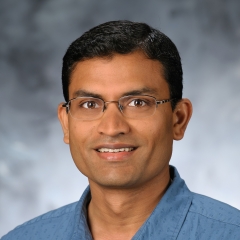 |
Sanjukta KrishnagopalSanjukta is an Assistant Professor in the Department of Computer Science. Sanjukta's research interests are multidisciplinary, with the goal of developing computational and mathematical tools to answer questions about real world physical, social, and biological systems. She received her PhD from the University of Maryland, College Park. She was a UC Presidential postdoc with a joint appointment at UC Berkeley and UCLA. She enjoys traveling and has lived on four continents. In her free time she enjoys dance, art, hiking, and attempting to climb mountains. Email: sanjukta at ucsb.edu
|
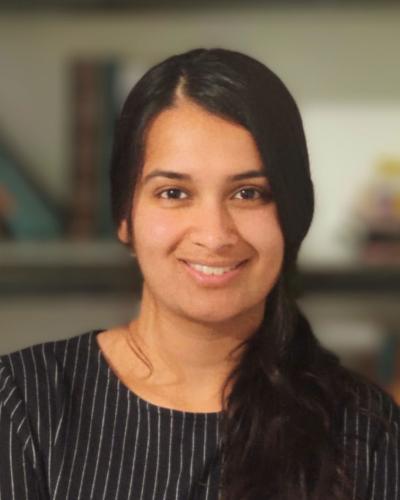
|
Nabeel NasirDr. Nabeel Nasir is an Assistant Teaching Professor in the Department of Computer Science at the University of California, Santa Barbara. He received his PhD in Computer Science from the University of Virginia in 2024. Before his PhD, he worked as an Android Developer at Adobe for the Lightroom and Photoshop Mix teams. He also worked as a Software Developer for an IoT startup, EnLite Research, developing solutions to reduce energy consumption in office spaces. He is passionate about teaching and broadening participation in Computer Science, and supporting undergraduate research in Cyber Physical Systems and CS Education. Email: nabeeln at ucsb.edu
|
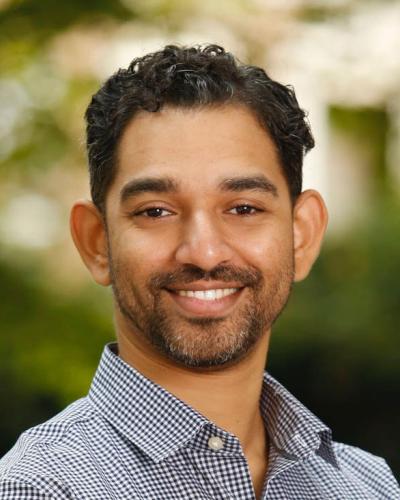
|
Richert WangRichert Wang is a joint Associate Teaching Professor between the Department of Computer Science in the College of Engineering and Computing in the College of Creative Studies. He received his Ph.D. in Information and Computer Science at UC Irvine in 2011. Professor Wang works on computer science pedagogy topics including interdisciplinary approaches to teach applications of computer science to students with various backgrounds. Professor Wang is the current faculty advisor for UCSB's Game Development Club. Email: richert at cs.ucsb.edu
|
 |
Jonathan BalkindJonathan Balkind is an Assistant Professor of Computer Science at UCSB. He received his PhD in Computer Science from Princeton University. His research interests lie at the intersection of Computer Architecture, Programming Languages, and Operating Systems. He is the Lead Architect of OpenPiton and its heterogeneous-ISA descendent, BYOC, which are productive research platforms with thousands of downloads from over 70 countries worldwide. Email: jbalkind at ucsb.edu |
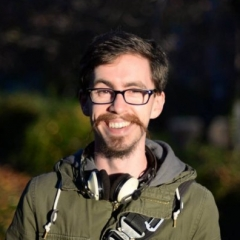
|
Ziad MatniZiad Matni is an Assistant Teaching Professor in Computer Science. He received his PhD in Information Science from Rutgers University, where he also taught as an adjunct faculty member before joining UCSB. Before his work in academia, he held multiple engineering and management positions in the semiconductor, computer systems, and data communication industry for over a decade. He engages in research in CS education, computational social science, and in data & information science. He currently directs the Early Research Scholars Program (ERSP) at UCSB and co-directs the CS Undergraduate Learning Assistant Program. Email: zmatni at ucsb.edu |
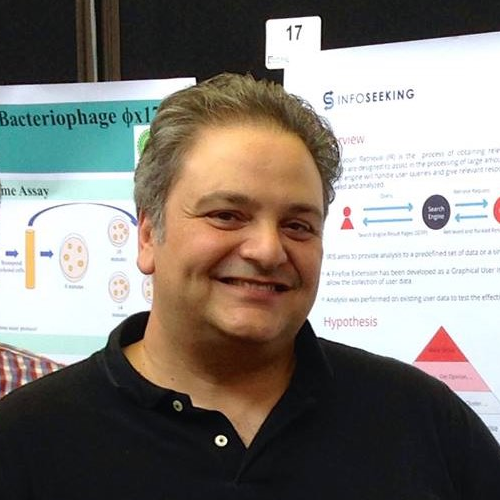 |
UCSB CE and CS Undergraduate Advising, Spring 2025 (continued)
James PreissJames A. Preiss is an Assistant Professor of Computer Science at the University of California, Santa Barbara. He received a Ph.D. in Computer Science from the University of Southern California. Before joining UCSB, he was a postdoctoral scholar in Computing + Mathematical Sciences at the California Institute of Technology. James has made contributions to a broad spectrum of topics in robotics, including control, learning, motion planning, and software platforms. Email: preiss at ucsb.edu
|
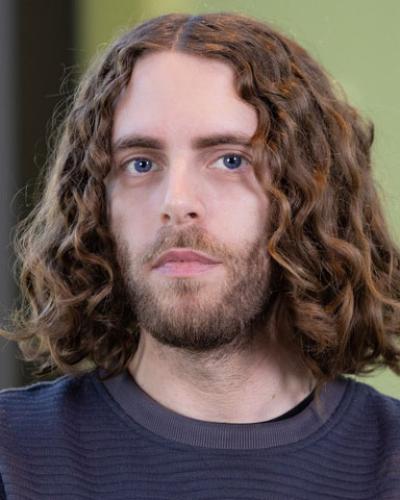
|
Maryam MajediDr. Maryam Majedi joined the Department of Computer Science at the University of California, Santa Barbara, as an Assistant Teaching Professor in 2023. Dr. Majedi's research primarily revolves around Embedded Ethics and Data Privacy. She explores the intersection of computer science and ethical considerations, aiming to develop modules that facilitate the integration of ethics and data privacy principles into computer science education. Email: majedi at ucsb.edu
|
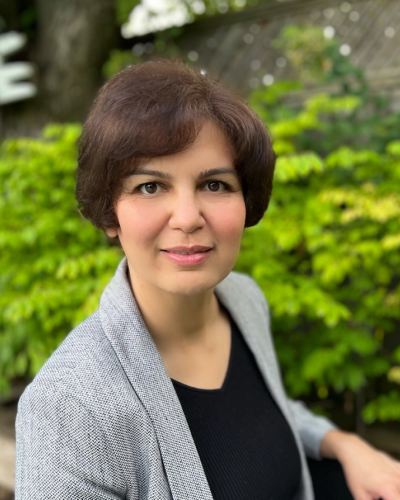
|
Misha SraMisha Sra is the John and Eileen Gerngross Assistant Professor and directs the Human-AI Integration Lab in the Computer Science department at UCSB. Misha received her PhD at the MIT Media Lab in 2018. She has published at the most selective HCI and VR venues such as CHI, UIST, VRST, and DIS where she received multiple best paper awards and honorable mentions. From 2014-2015, she was a Robert Wood Johnson Foundation wellbeing research fellow at the Media Lab. In spring 2016, she received the Silver Award in the annual Edison Awards Global Competition that honors excellence in human-centered design and innovation. MIT selected her as an EECS Rising Star in 2018. Her research has received extensive media coverage from leading media outlets (e.g., from Engadget, UploadVR, MIT Tech Review and Forbes India) and has drawn the attention of industry research, such as Samsung and Unity 3D. Email: sra at ucsb.edu
|
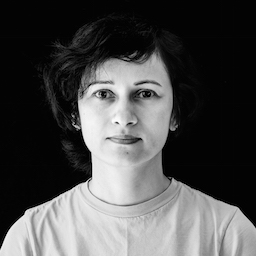
|
Murphy NiuMurphy Yuezhen Niu is an Assistant Professor and Stansbury Chair in Computer Science at UCSB since 2024. Previously, she was a senior research scientist in the Google Quantum AI team, where her work focused on intelligent quantum control optimization and metrology, quantum machine learning, quantum algorithm design and near-term quantum error correction. Niu received her doctorate in theoretical and mathematical physics from MIT in 2018. She received the Claude E. Shannon Research Assistantship for her work at the intersection of photonic quantum computation, quantum error correction and quantum cryptography. Professor Niu's long-term research goal is to develop quantum computing paradigms in regard to how we program, control, characterize, measure, and error correct a large-scale quantum computer without paying the steep price of digitization towards real-world impacts. Niu applies cutting-edge deep reinforcement learning and generative models to quantum control, quantum circuit compilation, and quantum system learning using some of the largest quantum computers based on superconducting qubits. Her recent research focus on developing scalable analog quantum control and algorithms for emerging quantum architectures with superconducting, ion trap, photonic, and neutral atom qubits. Email: murphyniu at ucsb.edu
|

|
Jianwen SuJianwen Su is a Professor in Computer Science. He received his PhD from the University of Southern California before joining the UCSB CS department in 1990. His research interests include database systems, services computing, and business process management. He is a member of th ACM and IEEE and has served or serves on committees of several conferences and journals. Email: su at cs.ucsb.edu
|
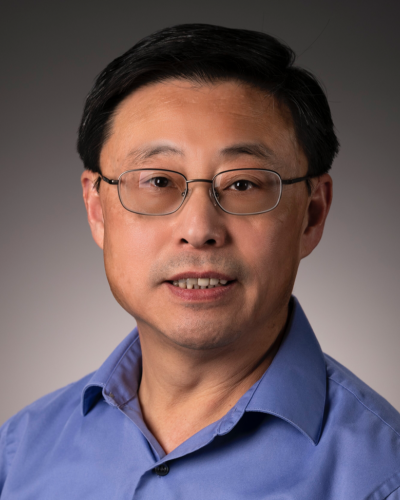 |
Yuan-Fang WangYuan-Fang Wang received his bachelor's degree in electrical engineering from National Taiwan University and his master's and Ph.D. degrees in electrical and computer engineering from the University of Texas at Austin. He joined the Department of Computer Science at the University of California at Santa Barbara in 1987, where he is currently a Professor. Dr. Wang's research activities center on machine learning, artificial intelligence, computer vision, computer graphics, bioinformatics, and digital image and video libraries. He has published over 150 peer-reviewed papers and holds two patents. Email: yfwang at cs.ucsb.edu
|
UCSB CE and CS Undergraduate Advising, Spring 2025 (continued)
Michael Beyeler Dr. Michael Beyeler directs the Bionic Vision Lab at UC Santa Barbara.
He earned his Ph.D. in Computer Science from UC Irvine and holds a B.S. in Electrical Engineering
and an M.S. in Biomedical Engineering from ETH Zurich, Switzerland.
Before joining UCSB in 2019, he completed a postdoctoral fellowship at the University of Washington,
where his work on computational models of bionic vision laid the foundation
for the research now pursued in his lab. Email: mbeyeler at ucsb.edu |
Dmitri StrukovDmitri Strukov is a Professor and Distinguished Lecturer in the ECE department at UCSB. He directs the Strukov Research Group, which aims to develop novel computation methods. He pursues highly interdisciplinary research, which spans material science, electrical engineering, and computer science. Email: strukov at ece.ucsb.edu
|
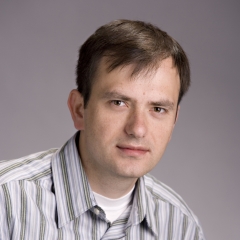
|
|
Tevfik BultanTevfik Bultan is a Professor in the Department of Computer Science. Professor Bultan joined the Department in 1998. His Ph.D. is from University of Maryland, College Park. His research interests include: dependability and security of web software, automated verification, program analysis, and software engineering. Professor Bultan's research group develops automated verification and analysis techniques that help developers in identifying and eliminating errors in software. Email: bultan at cs.ucsb.edu |
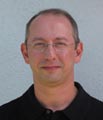 |
Kaustav BanerjeeBanerjee is one of the world’s leading innovators in the field of nanoelectronics. His current research focuses on the physics, technology, and applications of two-dimensional (2D) materials, such as graphene, for designing next-generation energy-efficient electronics, photonics, and bioelectronics. His pioneering contributions to nanoscale interconnect design and their energy-efficient solutions, particularly 3D integrated circuits, have been widely adopted and commercialized by the IC industry. His pathbreaking innovations with 2D van der Waals materials and heterostructures are setting the stage for next-generation electronics. This includes the invention of the Kinetic Inductor that overcame a 200-year old Faraday-limit of the inductance density of conventional materials. Email: kaustav at ece.ucsb.edu
|
 |
Linda PetzoldHer research is focused on modeling, analysis, simulation and software, applied to multiscale, networked systems in biology, materials and social networks. Her research group has been developing advanced algorithms for discrete stochastic simulation of systems where the fate of a few key molecules can make a big difference to important outcomes. We engage with experimentalists through the analysis of data and the development of mathematical models that yield insight and suggest new directions for research. Current collaborations range from biology(circadian rhythm (jet lag), and cell polarization), to medicine (coagulopathy and post-traumatic stress disorder), to ecology (chytrid disease in frogs), to social networks (sentiment analysis and opinion dynamics). Her group is collaborating with Prof. Chandra Krintz on the development of an integrated, cloud-based environment called Stochastic Simulation Service (StochSS) for modeling and simulation of biological processes Email: petzold at engineering.ucsb.edu
|
 |
Wenbo GuoWenbo Guo is an Assistant Professor of the Computer Science Department at UCSB. He received his Ph.D. from Penn State and did his postdoc at UC Berkeley. His research interests are cybersecurity and trustworthy machine learning. He is a recipient of the IBM Ph.D. Fellowship (2020-2022), Facebook/Baidu Ph.D. Fellowship Finalist (2020), and ACM CCS Outstanding Paper Award (2018). His long-term research goal is to design effective and trustworthy machine-learning solutions for a wide range of security problems. His recent research includes designing foundation models for software and network security problems, building reinforcement learning-driven planning and scheduling systems for security problems, and improving the explainability and robustness of large models and reinforcement learning. Email: henrygwb at ucsb.edu |
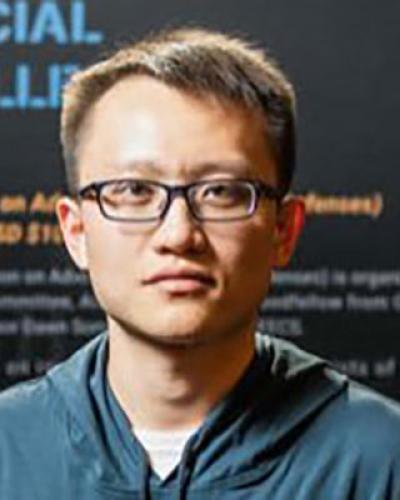
|
UCSB CE and CS Undergraduate Advising, Spring 2025 (continued)
Diba MirzaDiba Mirza is a Teaching Professor in the Department of Computer Science. She received her Ph.D. in Computer Engineering from the UC San Diego and joined the Computer Science department at UCSB in 2017. She worked as a post-doc on interdiscplinary projects in the department of Computer Science and the Scripps Institution of Oceanography at UC San Diego, where she developed underwater robotic swarms that can help scientists learn more about the ocean. She has directed the Early Research Scholars Program (ERSP) from 2018 to 2022, which is designed to support students in their first research experience. Email: dimirza at cs.ucsb.edu |
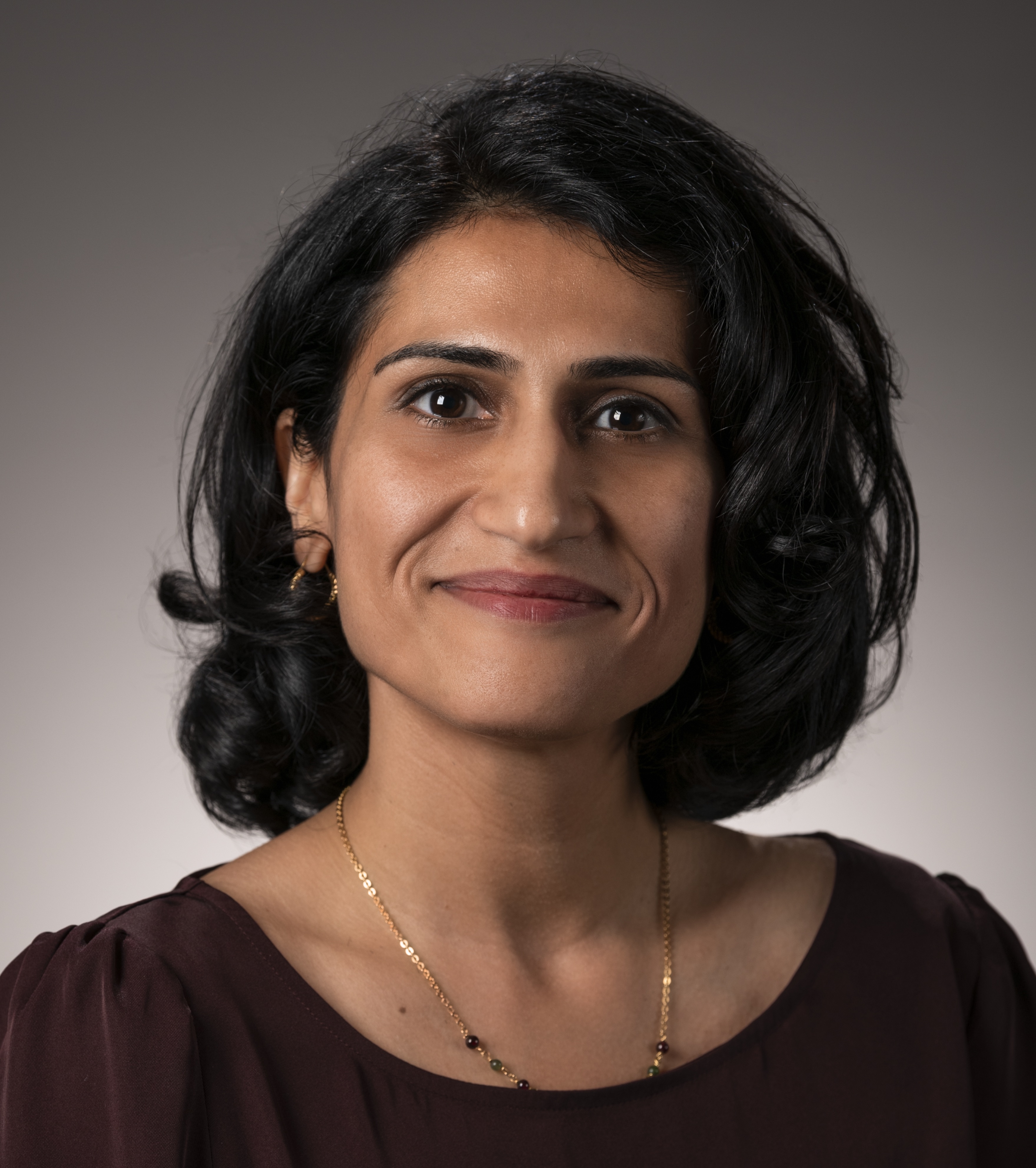 |
Xifeng YanXifeng Yan is a Professor in the Department of Computer Science. Professor Yan joined the Department in 2008. His PhD is from the University of Illinois at Urbana-Champaign. His research interests include: data mining, data management, machine learning, and bioinformatics. Email: xyan at cs.ucsb.edu |
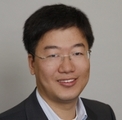 |
Tim SherwoodTim Sherwood is a Professor in the Department of Computer Science and Dean of the College of Creative Studies. Professor Sherwood joined the CS Department in 2003. He is a co-founder of Tortuga Logic. Professor Sherwood works on all manner of computer science and engineering problems from the perspective of how to better "shape" computers to address our needs (e.g. to be more secure or amenable to machine learning). Email: sherwood at cs.ucsb.edu |
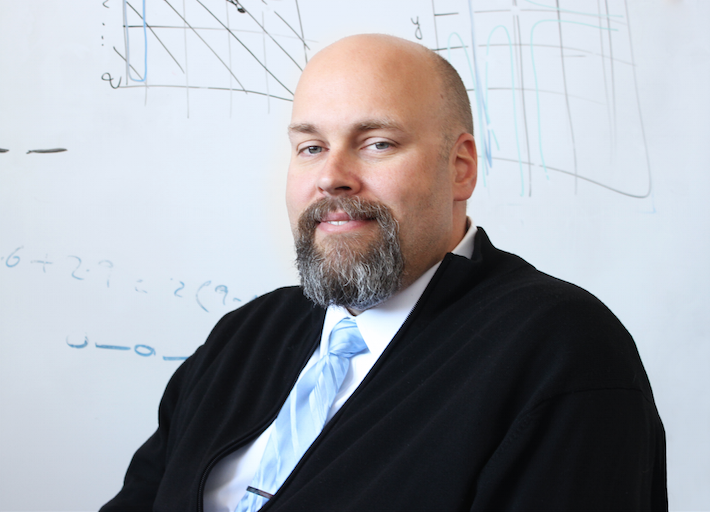 |
Haewon JeongDr. Jeong’s research focuses on building provably reliable machine learning (ML) systems using tools from information theory and coding theory. As ML systems are getting bigger, faster, and impacting more people, their reliability is challenged on many fronts. My research adapts and reinvents information-theoretic concepts for the context of reliable large-scale ML. To build reliability in machine metrics (e.g., computation time, accuracy), she marries coding theory and systems research to develop large-scale distributed algorithms that are resilient to unreliable or malicious nodes. To build reliability in human metrics (e.g., fairness, accountability), she closely collaborates with social scientists to investigate the fundamental limits of fairness of ML algorithms and develop discrimination mitigation strategies that can be used in practical ML pipelines. Email: haewon at ece.ucsb.edu
|
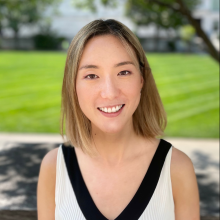 |
Phillip ConradPhill Conrad joined the faculty of the CS Department in January 2008, and in July 2012 was promoted to Lecturer (SOE), a career-oriented position focusing on undergraduate education. Dr. Conrad's focus is the lower-division curriculum, however he often teaches CS156, the project-oriented course in Java and Javascript. Email: pconrad at engineering.ucsb.edu |
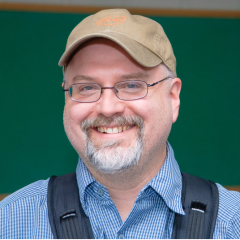 |
Ambuj SinghAmbuj Singh is a Professor of Computer Science and Biomolecular Science and Engineering. His undergraduate education was at IIT in India. He joined UCSB's computer science department immediately after his PhD. He has written over 180 technical papers in the areas of distributed computing, databases, and bioinformatics. He has worked with numerous students and graduated over 20 PhD and 10 MS students. His students have obtained positions in major research labs as well as domestic and international universities. Email: ambuj at ucsb.edu |
 |
UCSB CE and CS Undergraduate Advising, Spring 2025 (continued)
Peng LiPeng Li received the Ph. D. degree in Electrical & Computer Engineering from Carnegie Mellon University in 2003. He was on the faculty of Texas A&M University from August 2004 to June 2019. Since July 2019, he has been with University of California at Santa Barbara as a professor of Electrical and Computer Engineering. His interests are in brain-inspired computing, electronic design automation, integrated circuits and systems, robust machine learning, and application of machine learning to IC design. Email: lip at ece.ucsb.edu
|
 |
Giovanni VignaGiovanni Vigna is a Professor in the Department of Computer Science at the University of California in Santa Barbara. His current research interests include malware analysis, web security, vulnerability assessment, and mobile phone security. He also edited a book on Security and Mobile Agents and authored one on Intrusion Correlation. He has been the Program Chair of the International Symposium on Recent Advances in Intrusion Detection (RAID 2003), of the ISOC Symposium on Network and Distributed Systems Security (NDSS 2009), and of the IEEE Symposium on Security and Privacy in 2011. He is known for organizing and running an inter-university Capture The Flag hacking contest, called iCTF, that every year involves dozens of institutions around the world. He is a member of IEEE and ACM. Email: vigna at ucsb.edu |
 |
Behrooz ParhamiBehrooz Parhami is a Professor of Electrical and Computer Engineering. He is a Fellow of the Institute of Electrical and Electronics Engineers (IEEE), British Computer Society, and the Institution of Engineering and Technology. Parhami's areas of research include parallel computer architecture, with a particular focus on the assessment of performance, complexity, and fault tolerance in interconnection networks; computer arithmetic, focusing on redundant and other unconventional number representation systems, and table-based methods; lastly dependable and fault-tolerant computing. Email: parhami at ece.ucsb.edu |
 |
Kerem ÇamsariKerem Çamsari is an Associate Professor in the ECE department working at the Orchestrating Physics for Unconventional Systems (OPUS) Lab. His research interests including nanoelectronics, spintronics, Emerging Technologies for Computing, Digital and Mixed-signal VLSI, Neuromorphic and Probabilistic Computing, Quantum Computing, and Hardware Acceleration. Email: camsari at ece.ucsb.edu
|
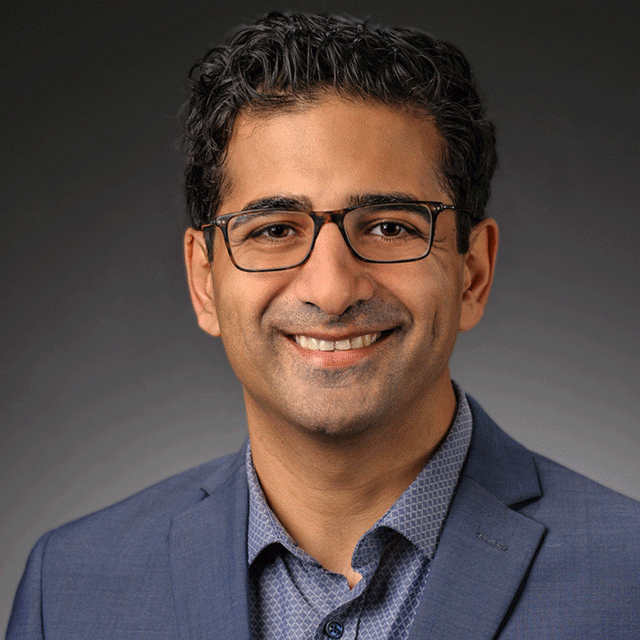 |
Yekaterina Kharitonova (Prof Kate)Prof Kate is an Associate Teaching Professor in the CS department at the University of California in Santa Barbara. Her current work focuses on incorporating cybersecurity, real-world data, and responsible AI integration into the computing curricula. Email: ykk at cs.ucsb.edu
|